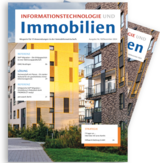The new billing data processing procedure from Aareal Bank boosts efficiency for real estate companies – TAG and GEBAG report on their successes
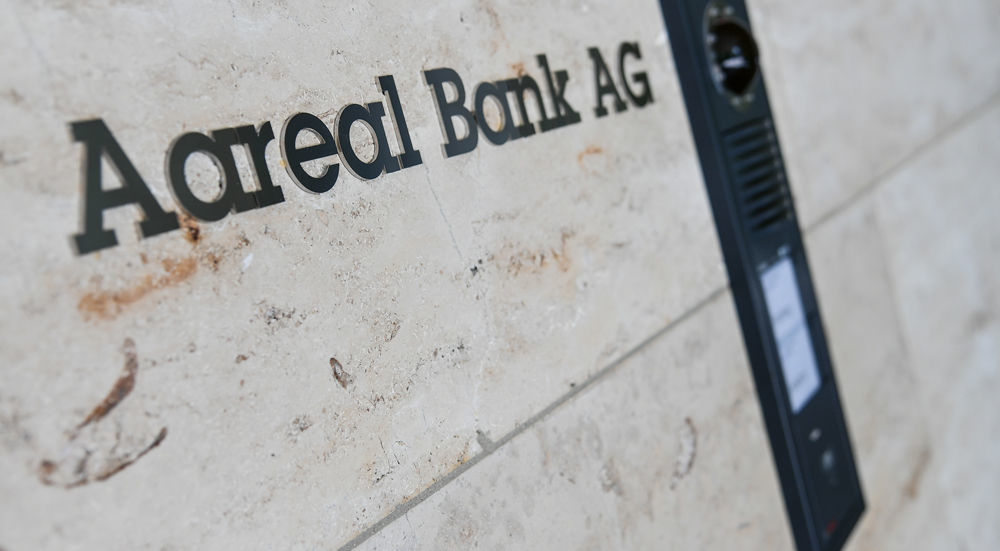
PROMOS and Aareal Bank – a long-standing, effective partnership
PROMOS and Aareal Bank have been cooperating for around 15 years in the area of billing data processing to the benefit of real estate customers. The BK01 process provided by Aareal Bank, which PROMOS has implemented for numerous customers, is an optimal solution for the error-free posting of vendor and customer invoices. It assigns virtual account numbers, which are then used to assign customer postings exactly to the corresponding open items and assign the correct target account assignments to vendor postings. Error rates are significantly reduced and real rationalisation effects are noticeable. The procedure especially pays off in rental accounting and in cooperation with energy suppliers. The new billing data processing procedure raises the degree of automation to a new level.
Vendor billing data processing procedure – For whom is it worthwhile and what are the requirements?
Supplier relationships, which are characterised by a high volume of invoices, offer particularly high potential for workload rationalisation effects through increased digitisation of routine tasks. Real estate companies regularly struggle with an extraordinarily high volume of invoices from energy suppliers, for example. Checks and account assignment take up significant time for the responsible utility costs department. Here, the vendor billing data processing procedure can provide a remedy by automating these steps. The prerequisite for implementation is that the invoices of the respective supplier are received digitally and in XML format. This is the case with XRechnung, the ZUGFeRD format and the original billing data processing format on which the Aareal eConnect solution is based. The use of the Aareal Bank solution on the part of the supplier is thus optional and not obligatory for the successful application of the vendor billing data processing procedure. For invoices in XRechnung or ZUGFeRD format, a corresponding customer-side mapping assists in forwarding the data. The customer must also have an Aareal Bank account with virtual account numbers. Otherwise, only the importing of the invoice is possible, but not the automated further processing in accordance with the billing data processing procedure.
Successfully used by customers – first-hand experiences, tips and tricks
Both TAG Immobilien AG and GEBAG Duisburger Baugesellschaft mbH are already using the new billing data processing procedure. Iris Ströhla, Head of the Shared Service Centre at TAG, implemented the billing data processing procedure in her company for all incoming invoices from the meter reading company Brunata and described the advantages of the new solutions: “First of all, the ecological aspect is important: the invoices now reach us digitally and no longer in paper form. They no longer have to be manually scanned and entered into the system either. It all runs automatically. Given the fact that the SAP® system carries out posting and account assignment itself, we can proudly state that we have seen an enormous increase in efficiency here.” As a supplier, Brunata uses Aareal Bank AG’s billing data determination procedure. This simplified the implementation process, since the procedure already generates the original format for the billing data processing procedure. Nevertheless, Ströhla advised: “It is crucial for the success of the project to clarify the most important cornerstones in advance, for example, in which structure the data to be processed must be available. We found that it was helpful to select a specific pilot property to test all the settings.”
Iris Ströhla, Head of the Shared Service Centre at TAG
The billing data processing procedure has been in use at GEBAG since 2019. Initially, the billing data processing 1.0 version was implemented for the energy supplier DVV. For Wirtschaftsbetriebe Duisburg (WBD), the processing of real estate levies via digital notices successfully went live with billing data processing 2.0 in July 2021. Another milestone this year will be the conversion of utility bills from version 1.0 of the solution to version 2.0. Kai van der Hoven, Head of IT and Project Manager at GEBAG, described the before-and-after effect: “The use of billing data processing 1.0 for Stadtwerke Duisburg’s utility bills over two years ago has already led to significant time savings both in the checking of incoming invoices and in ensuring correct bank debiting in the operating costs area. It was only logical for the department to further expand digital invoice processing. Upon the implementation of billing data processing 2.0 and the conversion of Wirtschaftsbetriebe Duisburg (WBD) to digital notices, we immediately took the opportunity to extend the optimisation to real estate levies. Billing data processing 2.0 once again showed a considerable leap in quality in the detailed presentation of all invoice/notification components and the automated check and account assignment. It has enabled us to process the notifications much faster this year than with the previous paper procedure. Likewise, the ecological factor is in the foreground due to the saving of printed paper invoices, as well as the significantly simplified processing of storage and handling with regard to the EU GDPR for the digital invoices.”
Billing data processing procedure – explained in 4 simple steps
A closer look at the system reveals the direct effects that the billing data processing procedure has on the new incoming invoice process.
Adding to contract master data
With the introduction of the billing data processing procedure, the suppliers to be converted according to the procedure receive two additional components in the debit master data (vendor BK01 contracts) in SAP® in the first step. On the one hand, the system generates a virtual BK01 account number, which is passed on to the supplier. On the other hand, the BK01 contract of the supplier is given a billing data processing profile enabling integration into the new invoice data processing procedure. Furthermore, all contractually agreed services are already mapped to a settlement unit in the supplier’s BK01 contracts. This has the advantage that the supplier can now debit total amounts consisting of several invoice components and material groups or service type groups. At the same time, however, the SAP® system is able to split the amounts via the BK01 account assignment report. All invoice components can thus be clearly assigned to their associated settlement units. A status (planned or posted) also enables the use of corresponding payment flows in liquidity planning.
Importing the vendor invoice
If the customer then receives an invoice from the vendor in XML format, it is transferred to a directory of the SAP® system application server and automatically imported from there. The system independently checks whether duplicates exist for certain criteria or whether the master data may be incomplete, preventing posting groups from being created. In such cases, the invoice is forwarded to the specialist departments for manual follow-up processing. If the invoice has been successfully imported, the details of the incoming invoice can be displayed. Here, you can view the structure of the invoice according to the individual billing groups (Figure 1).
The settlement group(s) have been assigned by the system to individual posting groups. It is possible to see exactly which settlement unit was found for the respective posting group (Figure 2). In addition, all components of the original invoice can be displayed via this structure.
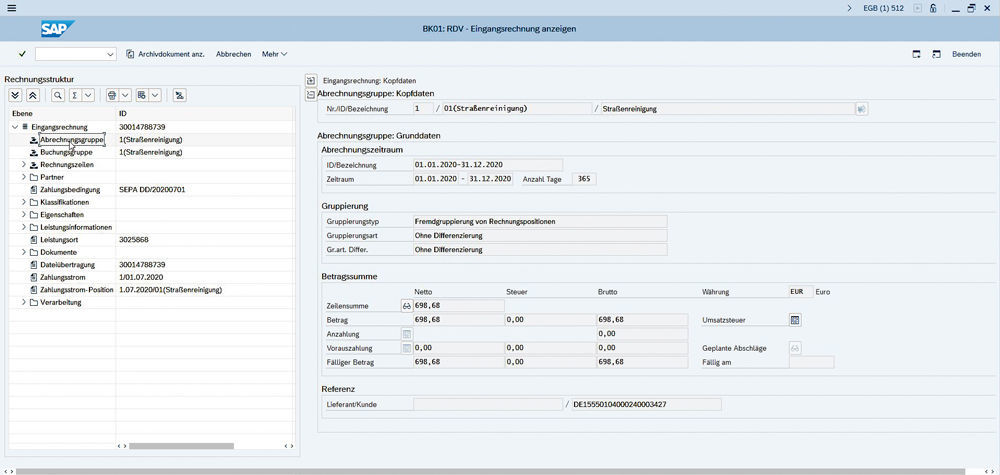
Figure 1: After importing an invoice, details of the incoming invoice can be viewed here, such as the structure according to the billing groups.
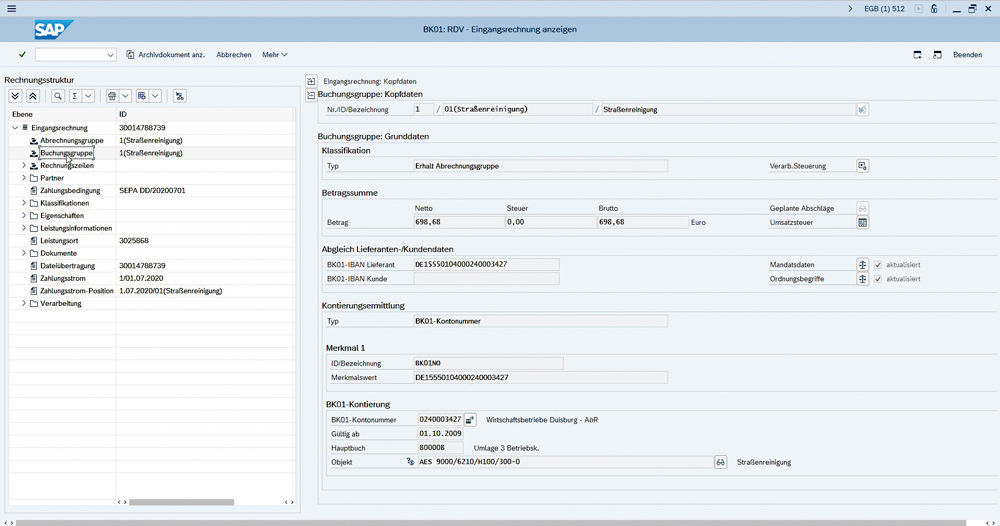
Figure 2: The posting group with assignment to the corresponding account assignment can also be traced in the system.
Viewing the payment flows in the contract
After the invoice has been imported, you can jump back to the contract via the “BK01 account assignment” button. If you click on the payment flow here, you can see all posted and planned payment flows as well as the individual items of the respective invoices in the form of posting groups. These represent the settlement units and can be traced back to the respective invoice components. After processing the electronic bank statement of a planned payment flow, the status automatically switches to “posted”. The actual posting of the electronic bank statement can be carried out automatically using the BK01 report “Posting of vendor account assignments”, which is also available independently of the new billing data processing procedure. After a successful posting, the posting details such as splitting and the corresponding sub-accounts can be viewed in the respective documents. Normally, however, this report is scheduled in the background in the customer system and thus runs automatically.
Status change of payment flows and archiving
When taking a last look at the contract, which is accessed via the BK01 number, you can also see the status change from “planned” to “posted” upon completion of the posting. On request, it is also possible to store the invoice as a PDF file for all properties relating to the process for archiving purposes.
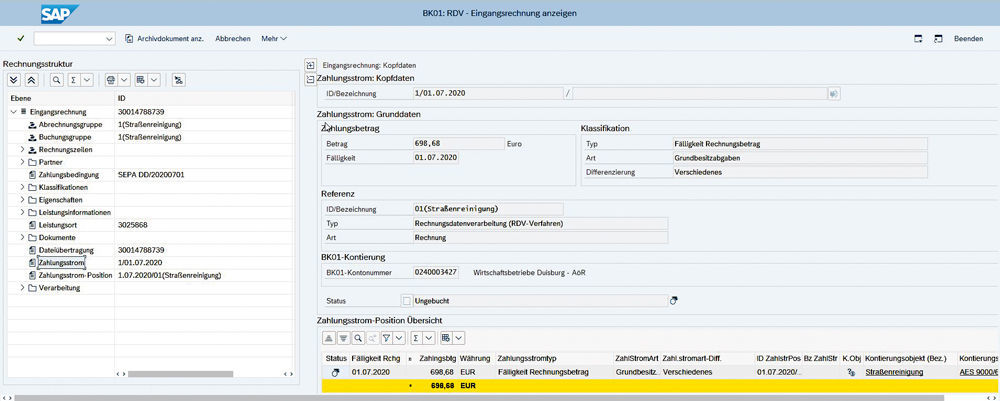
Figure 3: The payment flow is shown along with the status (posted/non-posted).
Outlook
Both TAG and GEBAG are currently in the process of expanding the implemented billing data processing procedure even further. TAG is fine-tuning its archiving, for example. GEBAG will convert DVV’s processing of digital utility bills to billing data processing 2.0 by the end of 2021. However, both companies are already benefiting from the achieved increase in efficiency. It is conceivable that other suppliers will also be linked to the billing data processing procedure in the future. For example, other municipal governments that deliver the property tax assessments (property tax, street cleaning, refuse collection, etc.) in digital form as an XRechnung or ZUGFeRD invoice could also be connected to the system.
Our clients benefit from the long-standing partnership between Aareal Bank and PROMOS today and will continue to do so in the future. In addition to the billing data processing procedure, the BK01 add-on contains other components with solutions for automated procedures. The latest topics are payment request processing with the newly created Aareal Exchange & Payment Platform (AEPP) for cash payment procedures and open item management.
Author:

Imke Knop
Expert Consultant Financials
PROMOS consult
Other articles by this author:
- Article "Migration at record speed – the fusion of federal state real-estate companies in Berlin"
- Article "A network of project developers – what makes working with PROMOS.GT so extraordinary for moderne stadt"
- Article "The new billing data processing procedure from Aareal Bank boosts efficiency for real estate companies – TAG and GEBAG report on their successes"
